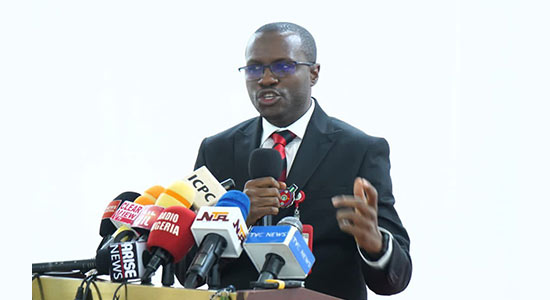The Independent Corrupt Practices and Other Related Offences Commission, ICPC, and other federal agencies have revealed that there is no verifiable evidence showing that local government allocations from the Federation Account reach the councils directly, exposing a long-suspected mystery surrounding local government finances in Nigeria.
This revelation reinforces widespread concerns about the lack of transparency, accountability, and autonomy at the local government level, despite constitutional and judicial provisions guaranteeing such independence.
The disclosure was made in Jos, Plateau State, during a capacity-building workshop on the Local Government Accountability Framework, LGAF, for the 17 Local Government Area Chairmen in the state.
The event was organised by the Rule of Law and Anti-Corruption, RoLAC, Programme, funded by the European Union and implemented by the International Institute for Democracy and Electoral Assistance, International IDEA.
The training brought together key governance and anti-corruption agencies, including the ICPC, Code of Conduct Bureau, CCB, Fiscal Responsibility Commission, FRC, Bureau of Public Procurement, BPP, and the Federal Ministry of Justice, FMoJ.
Speaking at the event, the Executive Secretary of the ICPC, Clifford Oparaodu, lamented that despite the Supreme Court ruling affirming full local government autonomy, there is still no uniform system to verify what councils actually receive.
“When funds are released from the Federation Account, they are channelled through the States Joint Accounts Committees. Many local governments do not know their exact allocations and only accept what is handed to them. This system makes planning impossible and undermines accountability,” Oparaodu said.
He added that while the ICPC cannot enforce court judgments, the Commission is concerned that non-compliance with such rulings weakens development and transparency at the grassroots. He stressed the need for stronger collaboration among anti-corruption agencies to ensure public resources are used effectively for citizens’ benefit.The RoLAC Programme Manager, Emmanuel Uche, underscored that democracy cannot thrive without transparency and accountability, while the Coordinator of LGAF, Umar Yakubu, decried the continued financial dependence of local governments on state governments.
“There is still no evidence that allocations reach the councils directly. Funds continue to pass through the state–local government joint accounts, giving governors control over how they are spent. Until citizens demand transparency, development at the grassroots will remain stunted,” Yakubu stated.
He disclosed that local governments receive about 20 percent of total revenues from the Federation Account, but poor accountability systems and weak citizen participation have prevented these funds from translating into improved schools, healthcare, and infrastructure. Officials from the CCB reminded participants mostly Directors of Finance that ethical conduct and transparency remains crucial in public service. They guided them through proper completion of asset declaration forms to prevent corruption and illicit enrichment.
Similarly, the Federal Ministry of Justice emphasized the relevance of the Freedom of Information, FOI, Act in promoting openness, while the BPP stressed that over 60 percent of public funds flow through procurement, warning that opacity fuels corruption.
The FRC reaffirmed that transparency and prudence in managing public funds are constitutional duties, not optional virtues, insisting that fiscal discipline and accountability are the pillars of sustainable governance.

